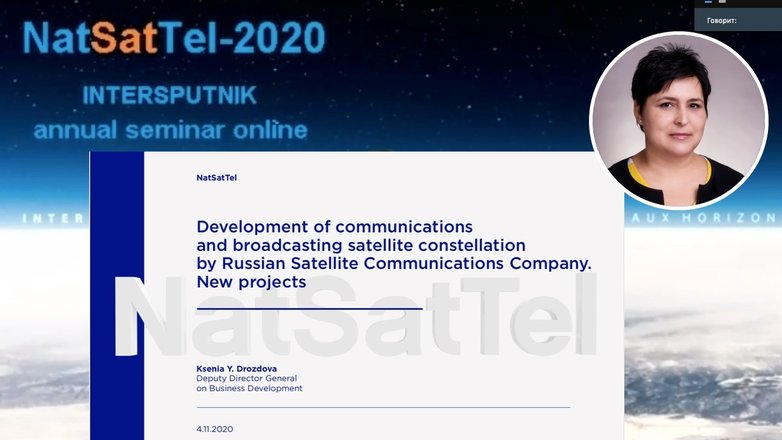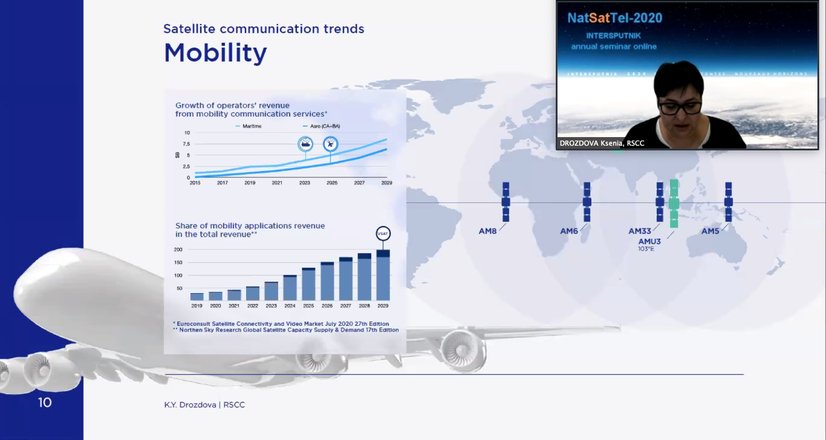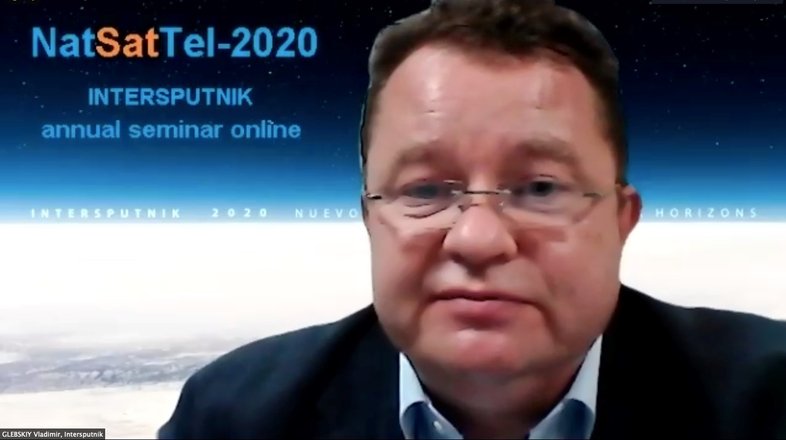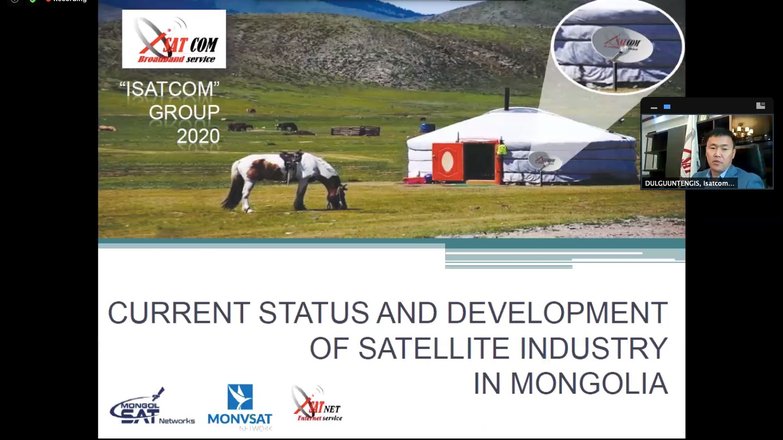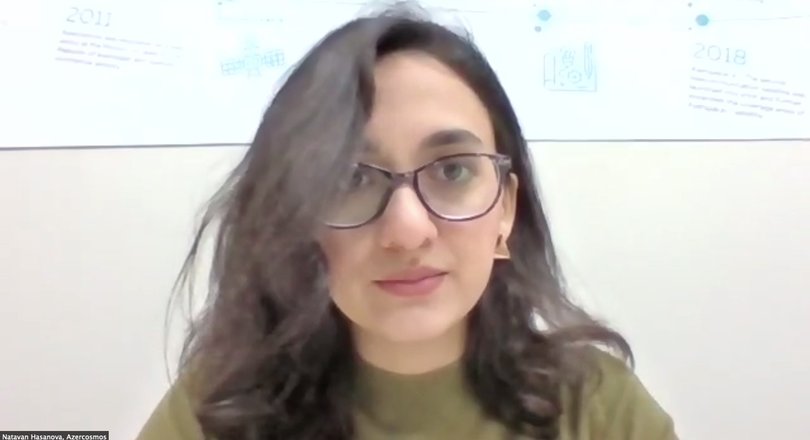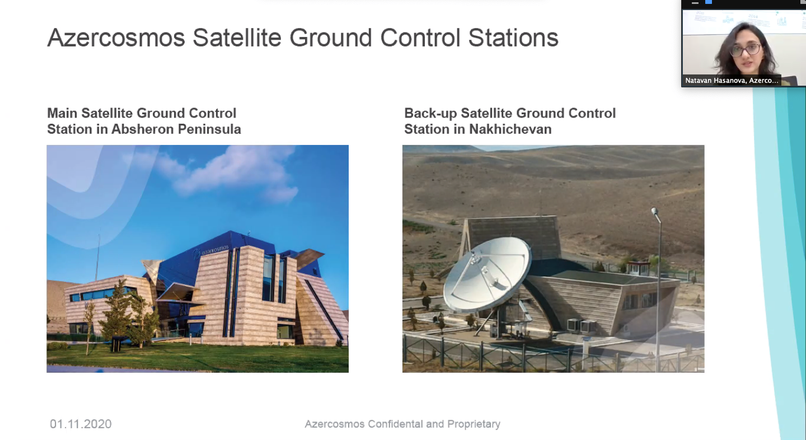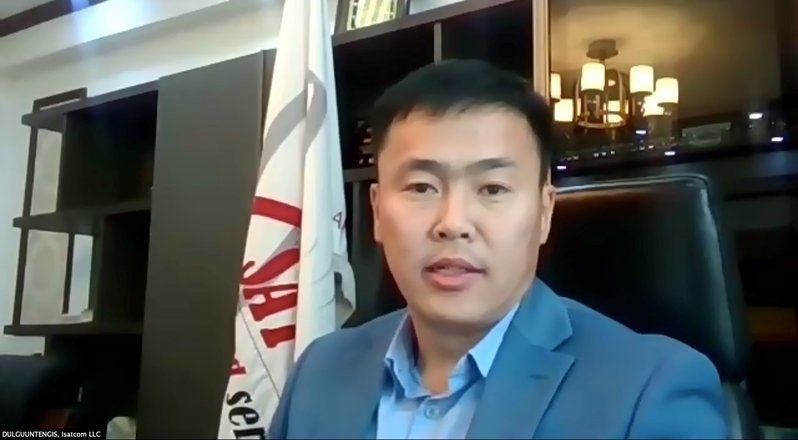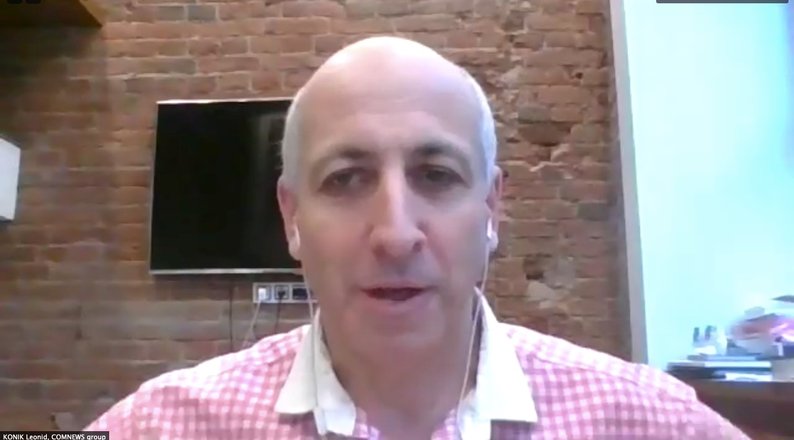New RSCC projects presented at Intersputnik’s annual international seminar NATSATTEL 2020
The Russian Federation at the seminar was presented by Ksenia Drozdova, Deputy General Director of Russian Satellite Communications Company for Business Development and Chairwoman of Intersputnik IOSC Operations Committee. In her speech, Ksenia Drozdova touched upon several principal aspects of the modern satellite industry development and areas of RSCC activities, which in the future will have an impact on the development of the Russian satellite communications industry in general. Thus, the events of 2020 showed that different segments of the satellite communications market in civil, commercial, military and other sectors are versatile, unstable and demonstrate very different dynamics of development: from slow demand growth to stagnation. Virtually all modern solutions on the market are customer-oriented. This means that the satellite industry sees a transition "from simple bandwidth lease to managed applications", i.e. from offering capacity in the market to generating processes that create the highest value. RSCC keeps a close eye on the global trends in satellite communications development, offering its customers a wide range of its own value-added services in the field of broadcasting and mobile communications. Thanks to this, even in spite of the Covid-19 pandemic, RSCC is very successfully developing this area of activity.
"The subsegment of fixed satellite communications on mobile platforms (cargo transportation, fishing, road transport, etc.) continues to develop dynamically. High hopes in this respect are placed on the Express-AMU3 spacecraft with multi-beam Ku-band antenna system, which RSCC plans to launch in the middle of 2021, as well as on the promising Express-RV high elliptic orbit communication system", said Ksenia Drozdova in her speech.
The importance of flexible approach in the work of the international satellite operator was also noted by representative of Azercosmos Natavan Hasanova. Another pressing issue – the impact of many new projects and startups in non-geostationary orbits on the satellite communications market – was raised in the course of talks and discussion of the paper by Leonid Konik (Comnews Info Group). However, the seminar participants agreed that in order to build global high-tech ecosystems and eliminate the digital divide, satellite systems in different orbits should not compete, but complement each other.
